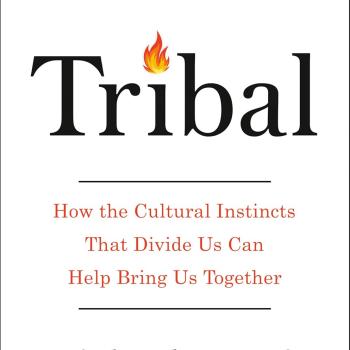Is the church fundamentally collection of individuals OR a single entity?
Another way of asking the question is this: Does the Bible have a collectivistic or a individualistic perspective of the church?
Check out the video above and let me know what you think. I did not want my accent in the video so I asked a foreigner (a non-Chinese person) to narrate. Leave your comments below.
Which comes first?
When I wrote the series reviewing A Christian Political Witness, I was especially struck by the insights of William Cavenaugh and Jana Bennett. The video integrates the two. What results surprised me.
Most people are aware that a wrong understanding of the gospel can lead to a mistaken view of the church. However, it dawned on me that it works the other way as well.
The way we look at the church might undermine our perspective on the gospel.
We have to ask ourselves, “If our ecclesiology does not come from the gospel, then where does it come from?” I suggest that our cultural background may have a far more profound influence on our doctrine of the church than we may realize.
I’m not saying this is ideal; I’m simply speaking at a practical level about what actually happens in so much of our daily thinking.
Broadly speaking, Westerners tend to be more individualistic; non-Westerners are often more collectivistic. That basic worldview difference is subtle yet can be decisive in shaping one’s ecclessiology. Of course, a worldview is a lens, not a set of doctrines. It is the lens through which we read Scripture and live our lives.

Possible Misunderstandings
I won’t elaborate much on the video itself. Rather, I simply want to anticipate a few possible misunderstanding and so clarify a few issues.
1. One OR Many?
We should not pit the individual against the group, the collectivistic and the individualistic aspects of the church. Someone might mistakenly think I’m dividing the two.
No, I would completely agree there is an individual aspect to the church. Namely, individuals belong to the church. However, simply affirming both sides does not clarify how they relate.
Paul’s image of the body in 1 Corinthians 12–14 is helpful. He speaks of the church as a body with many members. With that metaphor in mind, I will simply say this: the body is far more than the sum of its members.
Pardon the following graphic imagery. If someone were to carry in the room every member/part of my body and put them on the table, I would be quite hesitant to say that the pile before you is ME.
This is why the video uses the language of “most basic.” The word “basic” is not about importance; it’s about how one categorizes things. For example, in Saving God’s Face, I ask us to ponder why a puzzle is fundamentally one-thing (a whole) or a 100-things (the collection of many little pieces).
2. My Savior OR the World’s Savior?
The video states that Jesus is not “MY personal savior” who lives “in MY heart” rather he is the “savior of the entire world.” Of course, what is meant is that Jesus not merely my Savior nor is he simply my personal redeemer.
This is not a small point. So many people over-personalize Christ’s identity such that he is little seen as king of the world. It is critical that we preserve this point. He is not one household god among others.
His kingdom is inherently public, not private.
*For those interested, I have previously written an article titled “Authority in a Collectivistic Church,” which some may find relevant to the subject of this post.

















